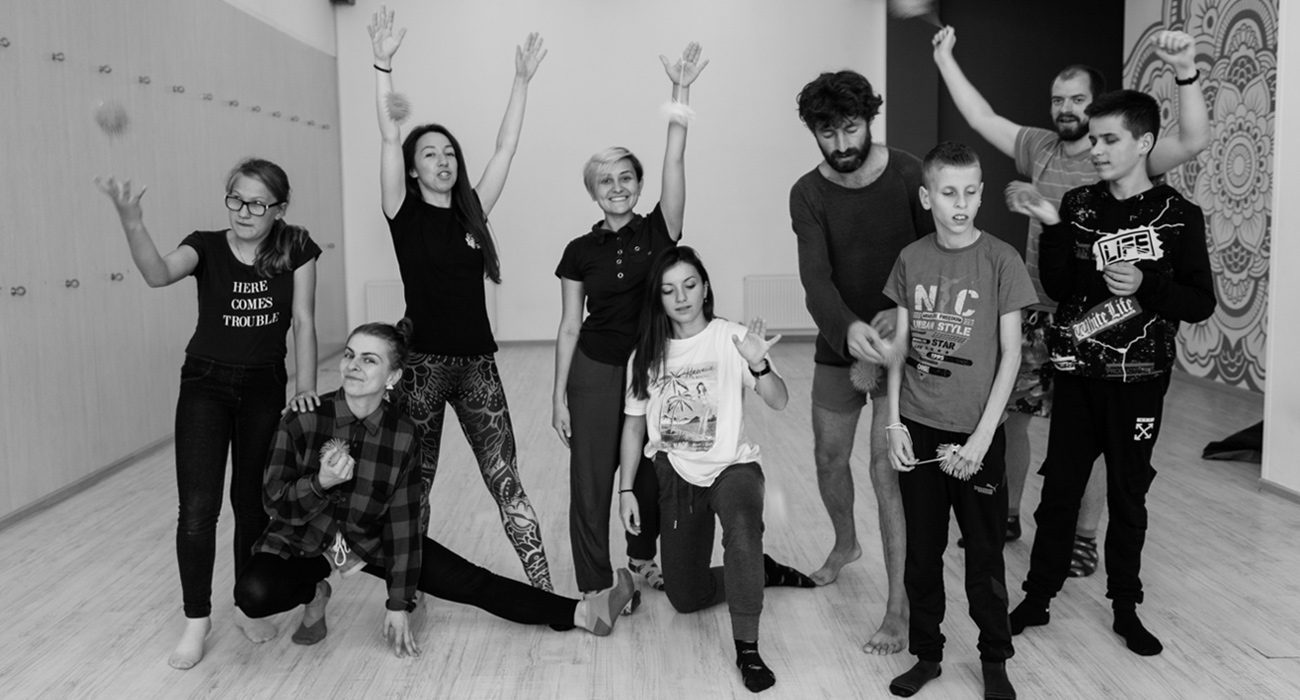In Ukraine there are almost no inclusive spaces for people with disability. Poor infrastructure is far from being the greatest problem they face; there are others, such as the fact that these people are not seen in our culture. In an effort to solve this problem, Lviv resident Anastasiia Voytyuk founded the “Way” festival of inclusive theatre. In a special feature for Zaborona, journalist and photographer Kateryna Moskalyuk spoke to Anastasiya about inclusive theatre and about how to help people with disability find themselves in art.
Back Stage
“Normally the media writes about our festival in a column dedicated to social issues” notes Anastasiya Voytyuk. “Not long ago I appeared on a Kyiv TV show: before I came on camera there was a story about the accessibility of city buildings for people with disabilities. Maybe someday we will be located in the category of “culture”, but for the time being we are perceived in this way.”
Anastasiya Voytyuk says that at the moment the environment of inclusive theatres in Ukraine resembles the stunted emotional development of a child. Anastasiya herself resembles a student: she is slim and energetic. We’re sitting in a cafe together as she tries not to check the incoming notifications on her phone. Other than preparing for the “Way” festival, Anastasiya is involved in musical projects with an inclusive element. She also plays in the group “Troye Zillia”, and is head of the public organisation “Untrodden Path”.
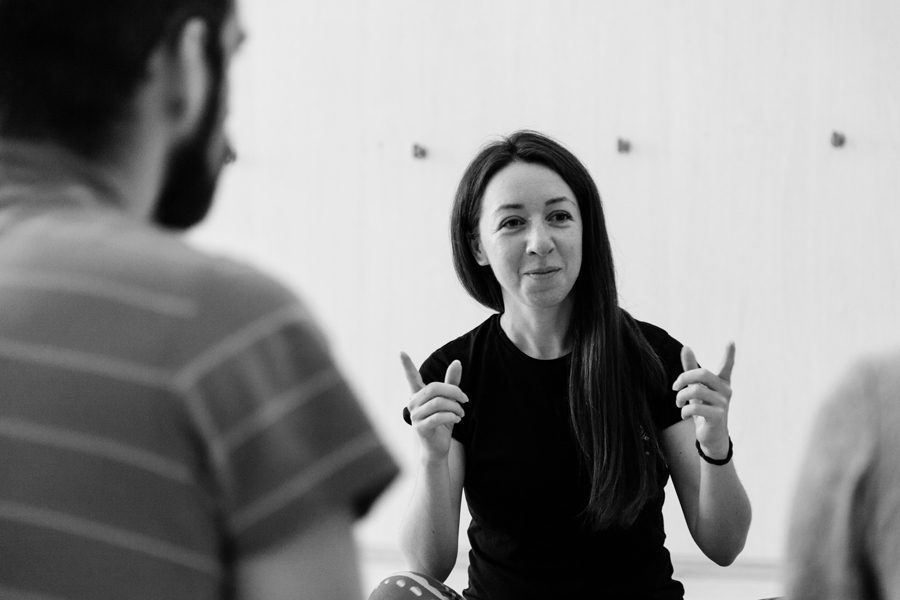
The participants of the “Way” festival are inclusive-theatre collectives. On the whole, these are small, considerate, unstructured, proactive, but often unprofessional environments. As a result, there are not many that are able to take part in the festival.
Anastasiya explains that despite the large number of theatre groups, only a few are ready to work on the professional stage. Nonetheless, the organisers set the bar high from the very beginning: all performances took place in Lviv theaters with professional sound, light and set design.

The first festival took place 20 years ago. Anastasiya’s older sister, Oleksandra, was born with abnormalities in her musculoskeletal system. She was diagnosed with cerebral palsy. The girls’ mother created the charity centre “Untrodden Path”, around which her community was formed. Together with other parents of children with disabilities, they started the festival. Anastasiya recalls how they were heavily influenced by the Polish organisation (“Fundacja Nieprzetartego Szlaku”) of the same name. Their Polish colleagues organised a number of cross-border projects, and were interested in collaboration with different regions. They borrowed the scheme used in the inclusive-theatre festival in Lublin (Poland) and implemented it in Lviv.
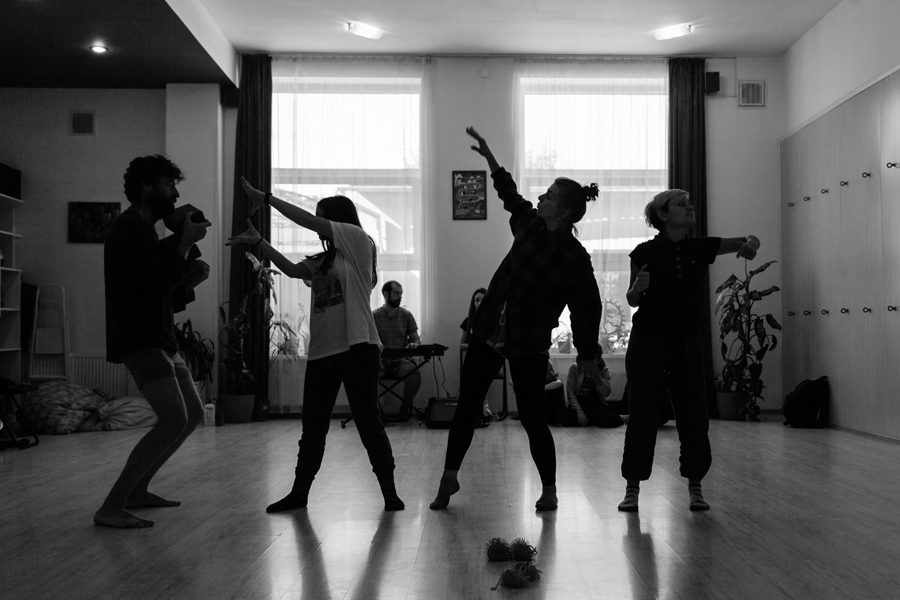
“Inclusive theatre has its own philosophy. Let me explain”. Anasatasiya smiles: “in my childhood, me, my parents, and my sister would go to concerts in the Lviv House of Officers. When I grew older, they used to give me and my sister presents. Why? Did I receive a present because my sister has a disability? Did my sister receive a present because she has a disability? In inclusive theatre, when a person comes on stage, they work on the same level as everyone else. Their “present” might be the audience’s attention, applause, or some other fond memory of the show. The person receives something in return for what he/she has done, not for his/her disability. Everyone knows that every society is obliged to create decent living conditions for all its members. In Ukraine this is not the case. People here feel guilty, perhaps, that others have even less than what they do. However, we have to give people with disabilities the opportunity to feel like adults, to make their own decisions, to fail, or to succeed.
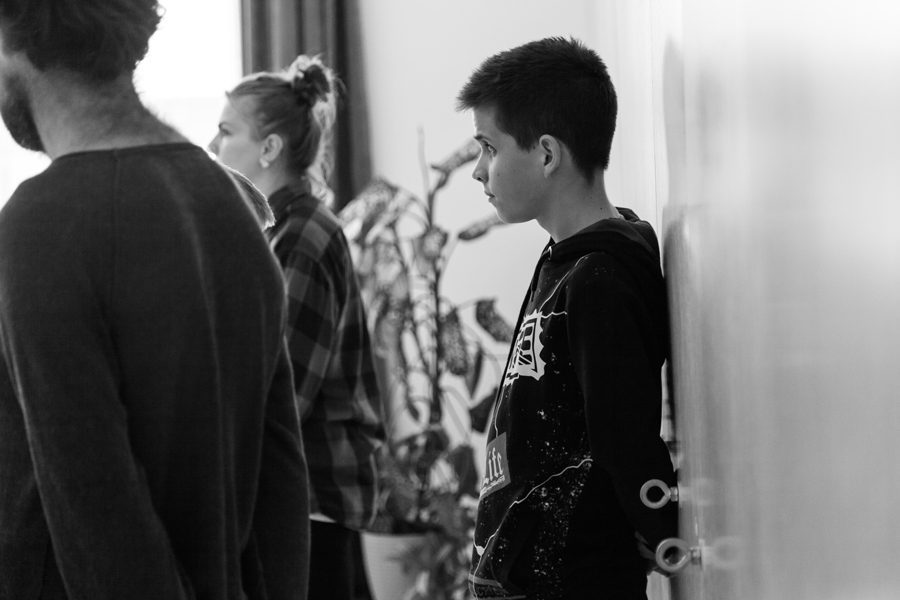
Over the last 20 years, organisers have brought over 200 theatre productions from 50 different theatre collectives to Lviv. The nearest partner countries are Poland, Belarus, Latvia, Lithuania, but there have also been collaborations with Germany, France, and some Scadinavian countries. The festival’s participants are often international, but in order to arrange a visit from a British theatre group, for example, a lot of money would be needed. One such troupe could “eat up” the festival’s whole budget. Normally, the “Way” festival consists of 15-16 different groups and four days of performances, productions for children and adults, and discussions. Anastasiya says that on the third day the festival’s organisers gather together the directors from different collectives to form a board of experts that gives feedback on the plays. These experts analyse performances taking into account resources available, choreography, sound design, therapeutic function and more. This is a special feature of “Way”, which distinguishes it from other, similar events.
Audience
“So, are the disabled children going to be on stage? Vasyl, listen, you’ll come and raise the curtain. Lenochka, can you sit down and turn off the lights?”. Anastasiya remembers how 20 years ago inclusive-theatre performances were not taken seriously. The audience’s emotions oscillated between curiosity and pity. Since the festival’s beginning, however, the awareness and perceptions of the groups and theatres that receive the festival have changed, as well as that of the donors, and, Anastasiya hopes, that of the audience.
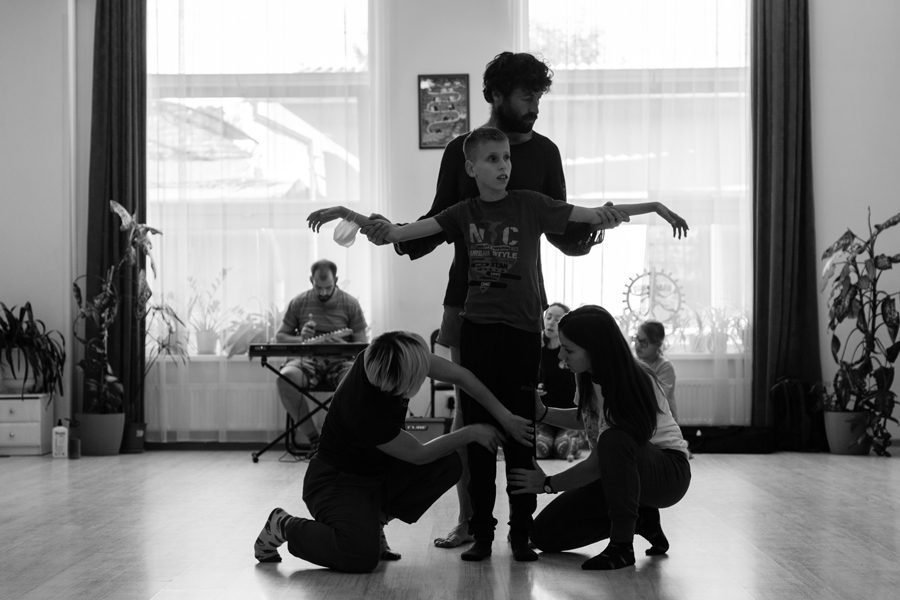
At its inception, the project lived off of support from social initiatives, friends and acquaintances, as well as various programs aimed at helping people with disabilities. Only in its eighth year did the festival receive support from the Lviv Department of Culture. In this year’s festival, the organizers planned a discussion with donors to talk about what is the most important area to finance: the accessibility of culture for people with disabilities or their participation in the cultural process. Anastasiya says that it takes time to persuade people that they can create something themselves. How many children with musculoskeletal, visual or hearing impairments are involved in extracurricular activities? How many learn acting, singing, or choreography? The logical question is: where do we find people who are capable of professionally creating an inclusive culture? Ramps, subtitles, voiceovers for the blind – all this is does not ensure 100% inclusion in culture. The arrangement of space solves the issue of inclusion only from the perspective of people without disabilities.
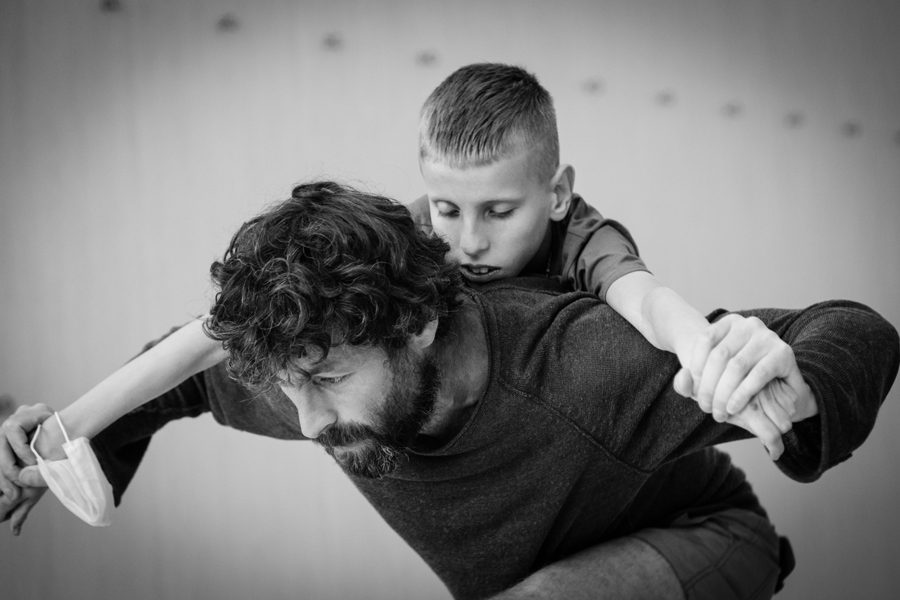
“We fought a long time to choose which participants we would accept in the “Way” festival. We have deadlines for video versions of performances, and requirements for the performance itself. If everything is done badly in a performance, we don’t accept it, but give advice on how to make it better. But on the other hand, there isn’t always someone to choose. However, we do organise trainings; actually, we’re very much involved in the development and spread of inclusive culture.” Anastasiya says that their team has developed over 30 training programs: from one-day to week-day events, from local to international. “I dream of a postgraduate course for those who plan on being involved in inclusive theatre. I want to develop a training program for professional actors and directors who want to work in inclusion. The situation is changing slowly, though: the development of inclusive culture depends on the progress of culture and education in Ukraine as a whole. We’re all in the same boat”.
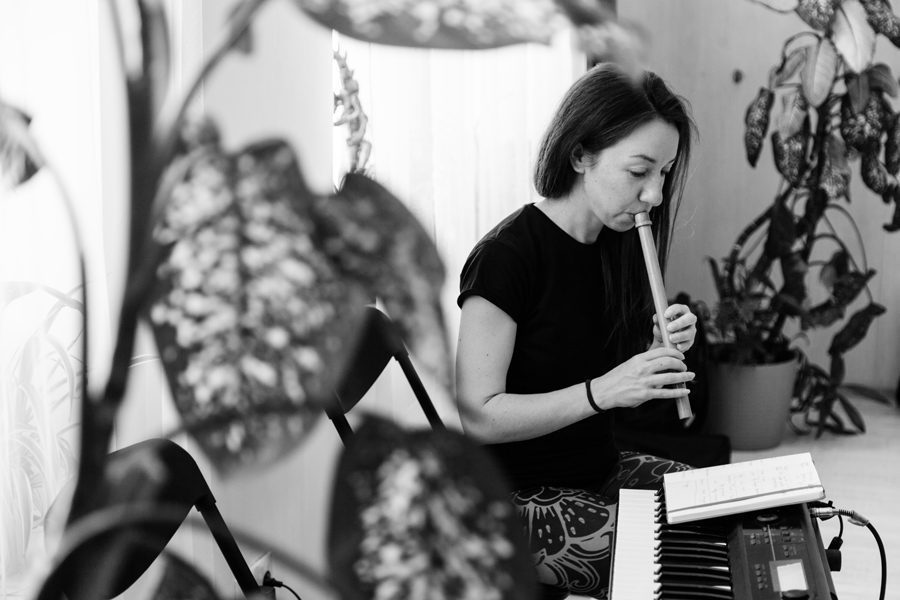
This year’s “Way” international festival of inclusive theatre will include 11 performances from different countries around the world, an online course for theatre directors and the “Reincarnation” competition. All events will take place online. The advantage of such a format is the opportunity to invite more people from different countries. Anastasiya says that it is important to discuss the possibility of working online with people with disabilities. This is quite difficult, since normally the main contact with the participants is based on live, face-to-face communication, not only including sight or hearing, but the whole body.
In Ukraine inclusive performances are generally watched by people who are close to the actors or experts involved in that world. New audience members need to be found and lured in. In Lviv, the festival cooperates with the City Education Department, which disseminates information about children’s performances in the city’s schools.
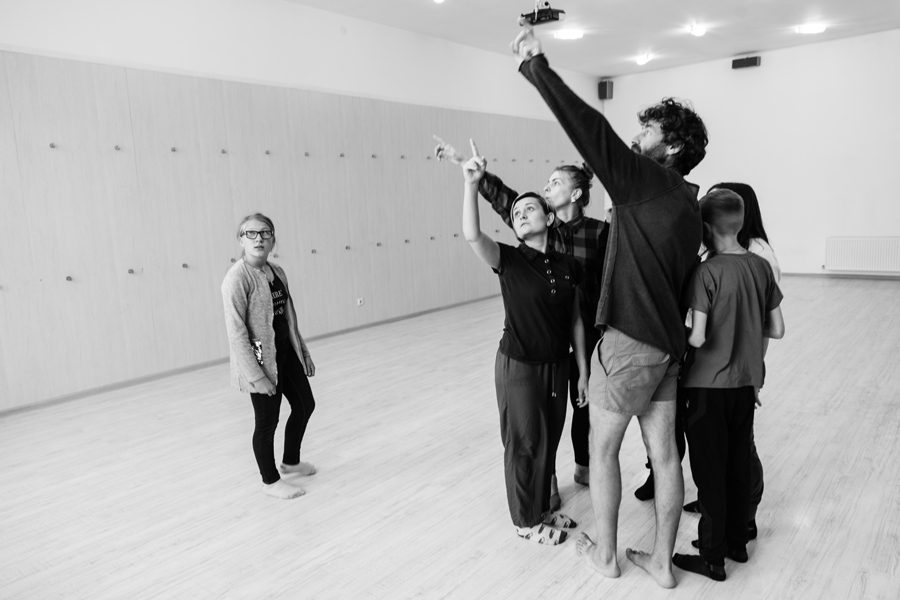
“If the show is good, children watch with interest. It’s great when someone realises from an early age that people with disabilities on stage can elicit joy from the audience. I believe that anyone who watches an inclusive-theatre performance will not leave indifferent. The people on stage give their all and give a lot of energy and emotions to the audience.”
Theatre is a marvellous dialogue of therapeutic and artistic functions. Anastasiya says that the theatre is similar to a large gym. The actors are physically active throughout the rehearsal – it’s a good workout for them. Theatre teaches basic communication skills, it teaches one to be punctual, to express his/her position, to say “no”, to take responsibility, to support colleagues. What’s more, the theater allows one to travel.
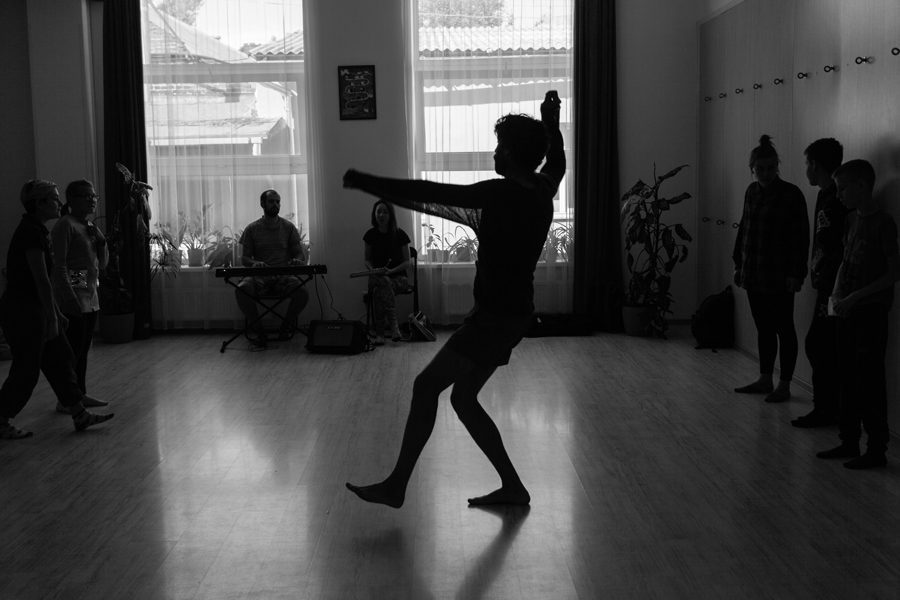
There are many controversial issues in inclusive theatre. For example, should an actor take on the role of a character who has the same disability that he/she possesses in real life? Can people with disabilities play the role of a negative hero? How ethical is this and where is the limit? Anastasiya says that each director and actor should answer these questions individually; there are no general guidelines.
“When we watch a play, we always analyze how complete it is and what message it carries. If we see a person on stage who feels comfortable – the director has done a good job. When a handful of frightened children are constantly looking behind the scenes in search of support – there is still a lot of work to be done. Personally, I don’t really like plays in which an actor directly complains about his/her fate. It seems to me that this frightens and pushes people away from the problem, instead of getting them interested and encouraging them to take a step towards helping.”
Performance
Almost two years ago, Anastasiya, together with her colleagues and the “Crane” collective from the Lviv №100 children’s institute, where visually impaired children study, undertook the “View” project. The play of the same name raises the issue of bullying in schools and the coddling of children with and without disabilities. Most importantly, children found this topic interesting. There are no tender-hearted dialogues in the play; everything happens as if it were a joke, but also with a deep, penetrating quality.
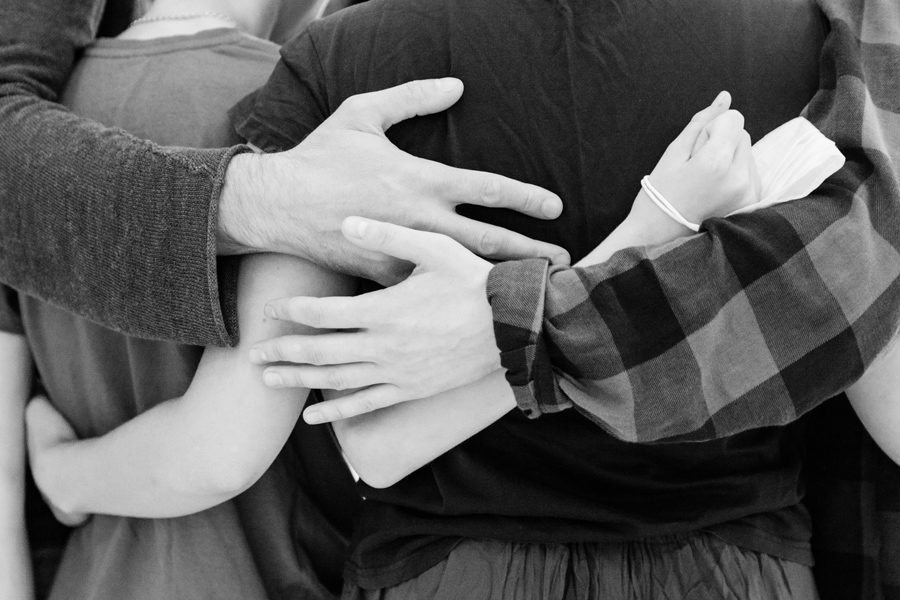
“Some children with disabilities are so wrapped in protective padding that it is difficult for them to breathe, some are carried and are not allowed to even step on the ground, and some are completely alone – these situations are familiar to everyone, and the play is about them.”
Society often ignores people with disabilities, mostly because it doesn’t know how to communicate with them. Anastasiya draws an analogy with foreign language courses. When we learn, for example, English, we learn about the native speakers of that language – what they eat, drink, and dress. Everyone in Ukraine remembers that classic phrase from their early English lessons: “London is the capital of Great Britain”. Why not, then, also tell children at school about people with disabilities? Explain the problems, for example, blind people face and how to help them without being offensive: a kind of education in communication.
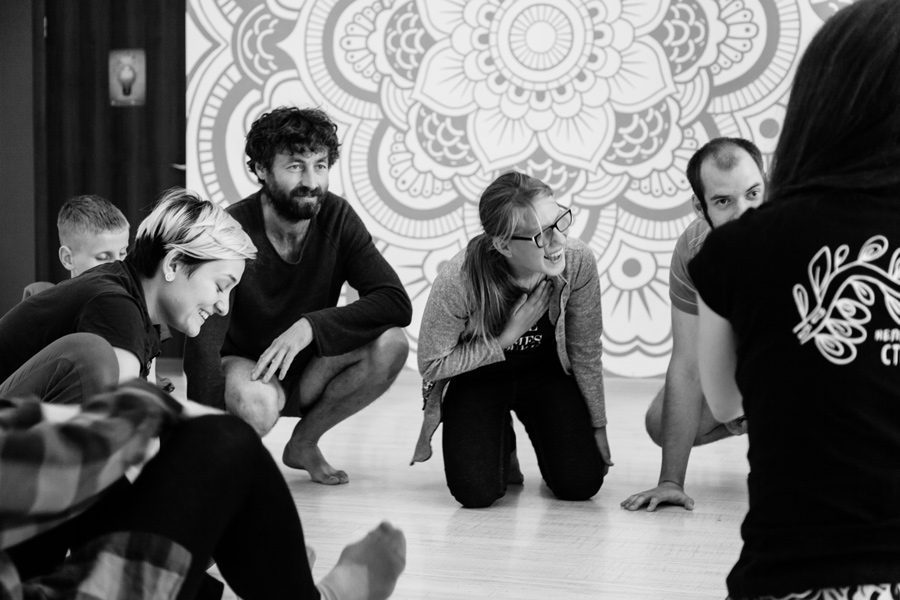
“The fear of another does not disappear quickly, and nor does the guilt for the fact that someone’s life is more difficult than yours. I am familiar with the feeling of regret: I can easily run 500m, while someone else has to wait two weeks for a social worker to come and push them in their wheelchair the same 500m. One has to accept things and do all that they can in such a situation. We need to look for opportunities; what we definitely do not need to do is whine.”
Anastasiya says that she used to have a long-held dream: to make a professional production of an inclusive play with “Untrodden Path”. Together with the British Council, she organized a training event, and in it one of the participants with a visual impairment “came out of her shell” during a dance class. Together with choreographer Maria Bakalo, the girls decided to create the project “View”. Later they were joined by a team of directors, as well as director Anna Epatko, designer Olya Steblak, and artist Bohdana Davydyuk.
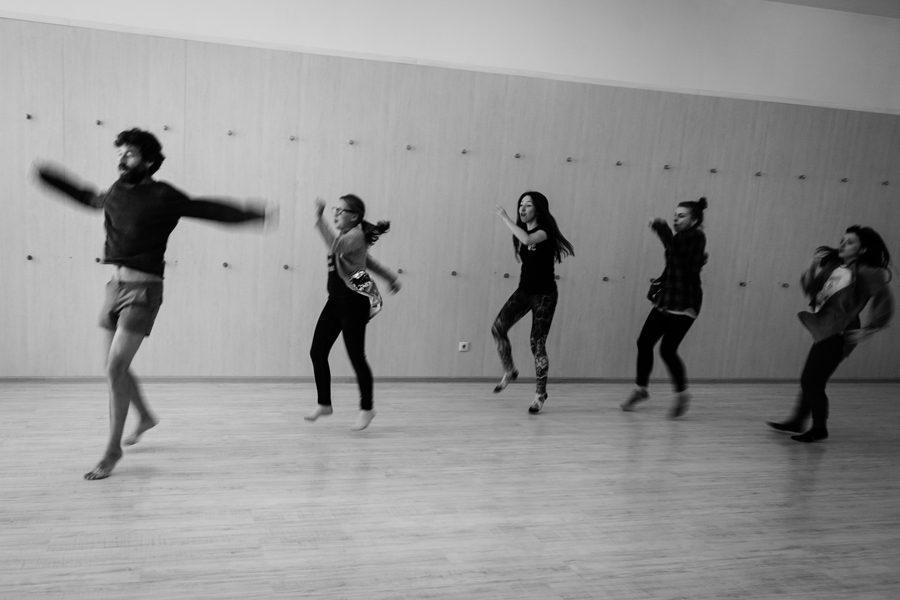
“Really, in order to move well, you don’t have to see yourself in the mirror,” Anastasiya says. “Halyna Partyka, the leader of the ‘Crane’ team, went to meet us: we held classes, got acquainted with the children and offered them to join our project. We immediately warned them that it will be difficult and that they will have to work hard. Today, ‘View’ consists of five children, five dancers, two musicians from the band ‘Troye Zillia’ and a 45-minute performance.”
For Anastasiya, a new project means new friends. During quarantine, the children found themselves in complete isolation at home, and it turned out to be quite difficult to maintain contact via the Internet. When the situation with quarantine eased a bit, the organisers of “View” rented a car and went to visit the children in the Lviv and Rivne regions. They got acquainted with their families, and convinced the parents that “View” could be trusted. Now, Anastasiya plans to raise funds for a concert tour to attract new spectators and give children the opportunity to explore the world outside their hometown.
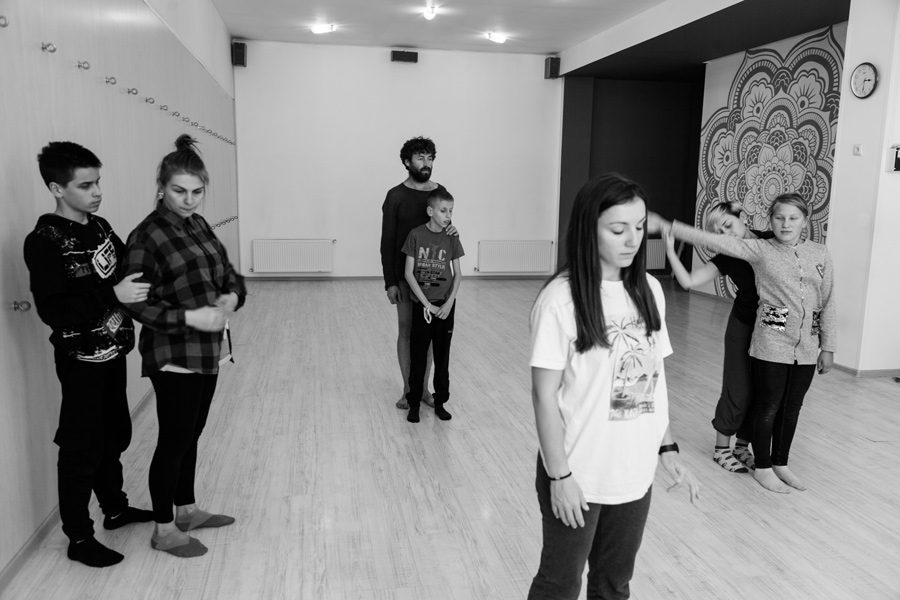
‘Hikers in the mountains know that they should go at the speed of the slowest walker. When speaking about artistic training, people with disabilities only need to be given a little more time to learn. We do not give someone the role of a tree in a play simply because he cannot move. We teach them to move. My task now is to build a team that will create and develop new projects. The “Way” Festival has to eventually disappear. I hope that at some point it will not be necessary: living conditions will be equally comfortable for all actors, and inclusive theaters will become commonplace. In twenty-years, not earlier’ – Anastasiya smiles.

